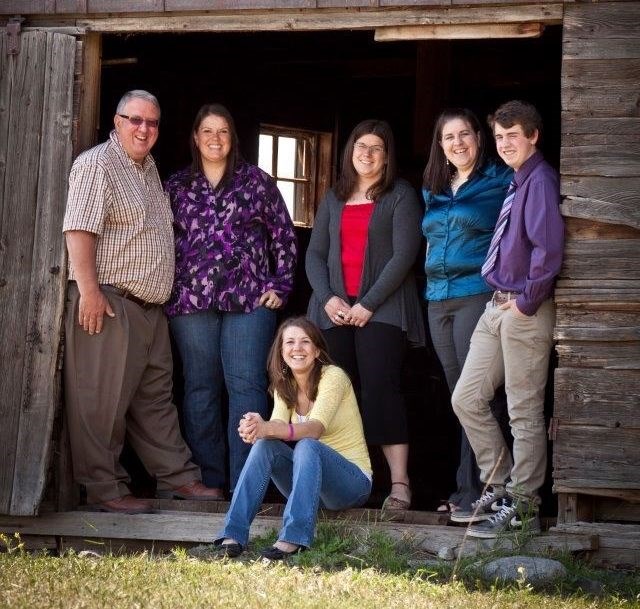Old Man Winter has few friends in cattle country.
"The colder it is, the more they eat," laments Kevin Boon, General Manager of the Kamloops-based B.C. Cattlemen's Association.
But sub-zero weather is only one of many challenges in a business that depends on nearly everything it can't control. Most ranchers embrace the myriad of hurdles with a dogged determination that few can match. With generations of problem solving behind them, they seem to have gotten good at it!
"There is a real desire by young people to stay on the land," says Boon, who remains hopeful and confident about the future of cattle producing, despite two devastating years of unparalleled wildfires and drought.
Those fires are expected to have long-running consequences. Feed shortages, smaller herds, and unwanted costs related to lost fencing – and that’s just those areas that experienced fire directly. Cattle producers throughout British Columbia have been forced to purchase expensive feed in drought-stricken Alberta, Saskatchewan, and Manitoba.
However, predator losses, weather extremes, fires, floods and volatile markets are all secondary to what really bothers Boon:
"The one thing that frosts my bananas more than anything is misinformation and the claim that ranching contributes to climate change."
He notes a long-held view by the environmental crowd that cattle ranches are contributing directly to greenhouse gases and ozone deterioration:
"They take into account the methane produced when cattle burp and fart but refuse to consider the potential of environmental damage from un-grazed grass."
Boon points to the environmental benefits of well-managed pastures, which include reduced soil erosion, improved air and water quality; better plant diversity, and improved fish and wildlife habitat.
From his 112-year old ranch on the outskirts of Kamloops, Doug Haughton shares Boon's concern, noting that in the beef business, perception is reality.
"I don't have a fart-o-metre," says Haughton, who vigorously defends the ranching sector's environmental history.
"You start with the grasslands and the water...there isn't a part of society that looks after those things as well as a family ranch. No environmental group, no David Suzuki, none of those who think they are going to save the world have two cents invested in anything. We do!"
While strongly critical of the latest Canada Food Guide which recommends more plants and less meat, Haughton admits that to survive a changing marketplace, cattle producers need to "listen to the customer."
If future consumers want meat products without growth stimulants, cattle producers will need to provide it – or face the consequences.
"We better listen to the customer out there. We need to provide the product that the consumer wants to buy - It's not rocket science."
But while Haughton is convinced that his industry still has a bright future despite several hurdles, he also remembers the beef sector's darkest day.
It was one of those "remember where you were moments" in May 2003, when during a Cattlemen's Association conference in Kamloops, news broke about a case of BSE (mad cow disease) on a farm in Alberta.
"It was just like a shudder of silence for the whole convention," recalls Haughton, convinced that despite several new safeguards, the industry never fully recovered from a crisis that saw the world close its doors to Canadian beef.
For his part, Boon is adamant that Canadian beef is once again respected around the world, and international trade figures appear to prove it. As B.C.C.A. members prepare for their next convention in Williams Lake in May, Boon reports that approximately half of all B.C. beef is exported, with approximately 90% shipped to the United States. He also confirms that Asian consumption of Canadian beef is on the rise in Japan, Vietnam, and to a lesser degree, China.
For those of us whose knowledge of the cattle business goes little further than the grocery store, while beef prices have moderated in recent years, the B.C. Cattlemen's Association is predicting little change for your favourite steak for the fast-approaching BBQ season.
"I'd say if we can hold where we're at, the guys can make a living," Boon, although when asked what the average B.C. rancher earns per year, his immediate response with a chuckle is "nothing."
Like many industries critical to British Columbia's economic success, this is a time of change for ranchers. That said, the harsh reality for cattle producers is simple: their future depends on their ability and willingness to adapt.
As always, I welcome your comments and criticism on Twitter: @kammornanchor
Bob Price is a veteran B.C. broadcaster who anchored the morning news on CHNL radio in Kamloops for the past 30 years. Bob is also a past Webster Award winner whose previous stops included Vancouver and Calgary.



